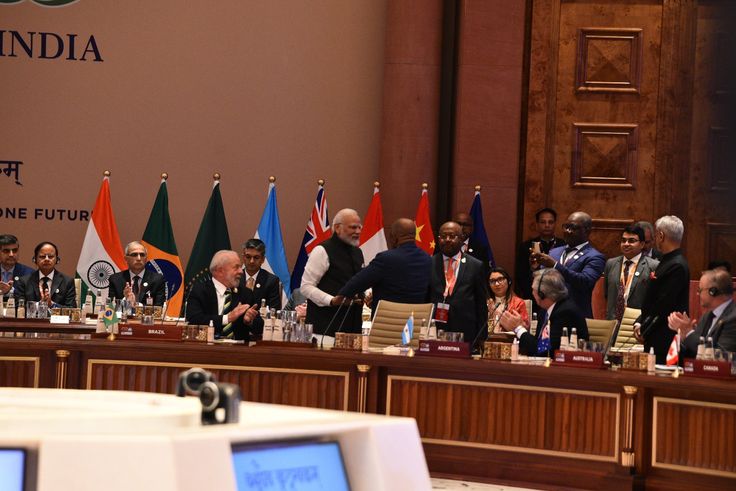Indian Polity & Constitution
The Indian Polity & Constitution is one of the most important subjects for every government exam in India, including UPSC, SSC, Railway, Banking, CDS, NDA, and state-level exams. It forms the backbone of India’s governance, legal system, and democratic structure.
In this blog, we’ll cover the key highlights, important articles, amendments, and must-read topics in Indian Polity and Constitution for 2025.
Indian Polity refers to the structure and functioning of the Indian political system, including the roles of the Executive, Legislature, and Judiciary. It explains how laws are made, how the government works, and the rights of citizens.
It includes topics like:
The Union Government
State Government
Fundamental Rights and Duties
Panchayati Raj System
Election Process
Judicial System
📜 Indian Constitution – An Overview
The Constitution of India is the supreme law of the country. It lays down the framework that defines the political principles, establishes the structure, procedures, powers, and duties of government institutions, and sets out fundamental rights and duties of citizens.
🔍 Key Features of the Indian Constitution:
Lengthiest Constitution in the World
Federal System with Unitary Features
Parliamentary Form of Government
Independent Judiciary
Fundamental Rights & Duties
Directive Principles of State Policy
Secular and Sovereign Republic
📌 Important Articles of Indian Constitution
Here are some crucial articles you must remember for competitive exams:
| Article | Subject |
|---|---|
| Article 14 | Right to Equality |
| Article 19 | Right to Freedom |
| Article 21 | Protection of Life and Personal Liberty |
| Article 32 | Right to Constitutional Remedies |
| Article 44 | Uniform Civil Code |
| Article 370 | Special status to Jammu & Kashmir (now abrogated) |
| Article 368 | Procedure to amend the Constitution |
🧾 Important Amendments in the Constitution
Understanding amendments is crucial. Here are a few significant ones:
1st Amendment (1951) – Reasonable restrictions on free speech
42nd Amendment (1976) – Mini Constitution; added words Socialist, Secular, and Integrity
44th Amendment (1978) – Right to property removed from Fundamental Rights
73rd & 74th Amendments – Panchayati Raj & Municipalities
103rd Amendment (2019) – 10% EWS reservation
📚 Important Topics for Exams 2025
Here are key topics from Indian Polity & Constitution you must prepare:
Preamble of the Constitution
Fundamental Rights and Duties
Directive Principles of State Policy
President, Prime Minister, Parliament
Supreme Court and High Courts
State Legislature and Governors
Election Commission of India
Emergency Provisions
Constitutional and Non-Constitutional Bodies
📝 How to Prepare Indian Polity for Exams
Start with NCERT Polity Books (Class 9–12)
Read “Indian Polity” by M. Laxmikanth – the go-to book for UPSC & SSC
Practice MCQs and previous year questions
Stay updated with current affairs on political and legal developments
Take regular online quizzes to revise effectively
🔍Recent Polity-Related Current Affairs (2024–2025)
Include 3–5 recent developments to connect the Constitution with real-world events:
New bills passed in Parliament (e.g., Uniform Civil Code proposal, data protection law)
Supreme Court judgments related to Fundamental Rights
Changes in Election Commission or Constitutional bodies
Amendments or government policy announcements impacting governance
🧠 Polity Quiz Section
Add 5–10 MCQs at the end for self-assessment:
Example:
Q: Which article deals with the Right to Constitutional Remedies?
A: Article 32
This improves user engagement, dwell time, and gives your blog practical value.
🤔 Why is Indian Polity Important for Exams?
It forms a major part of General Studies in UPSC Prelims and Mains.
Polity questions are frequently asked in SSC CGL, CHSL, Banking, NDA, and Railways.
Knowing your Constitution helps in becoming a more aware and responsible citizen.
📖 Conclusion
Indian Polity & Constitution is not just an exam topic—it’s the foundation of our democracy. For students and aspirants in 2025, mastering this subject is essential for success in competitive exams and understanding India’s governance.
📌 Keep revising, stay consistent, and follow Vidya Vedas for monthly GK updates and quizzes on Indian Polity.


2 Responses